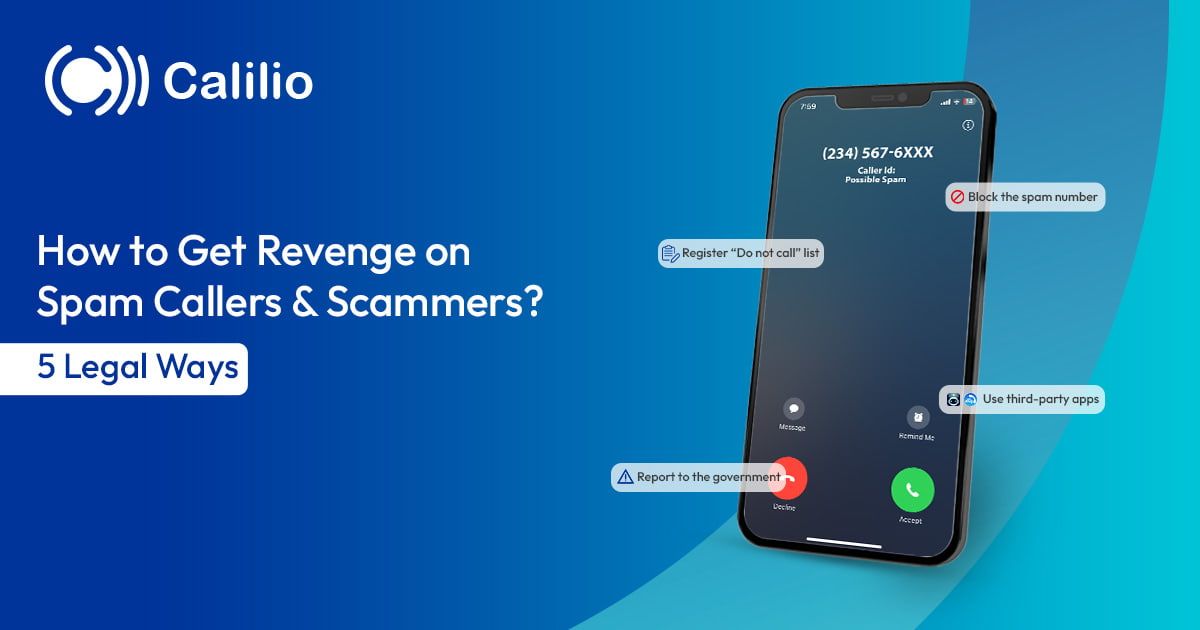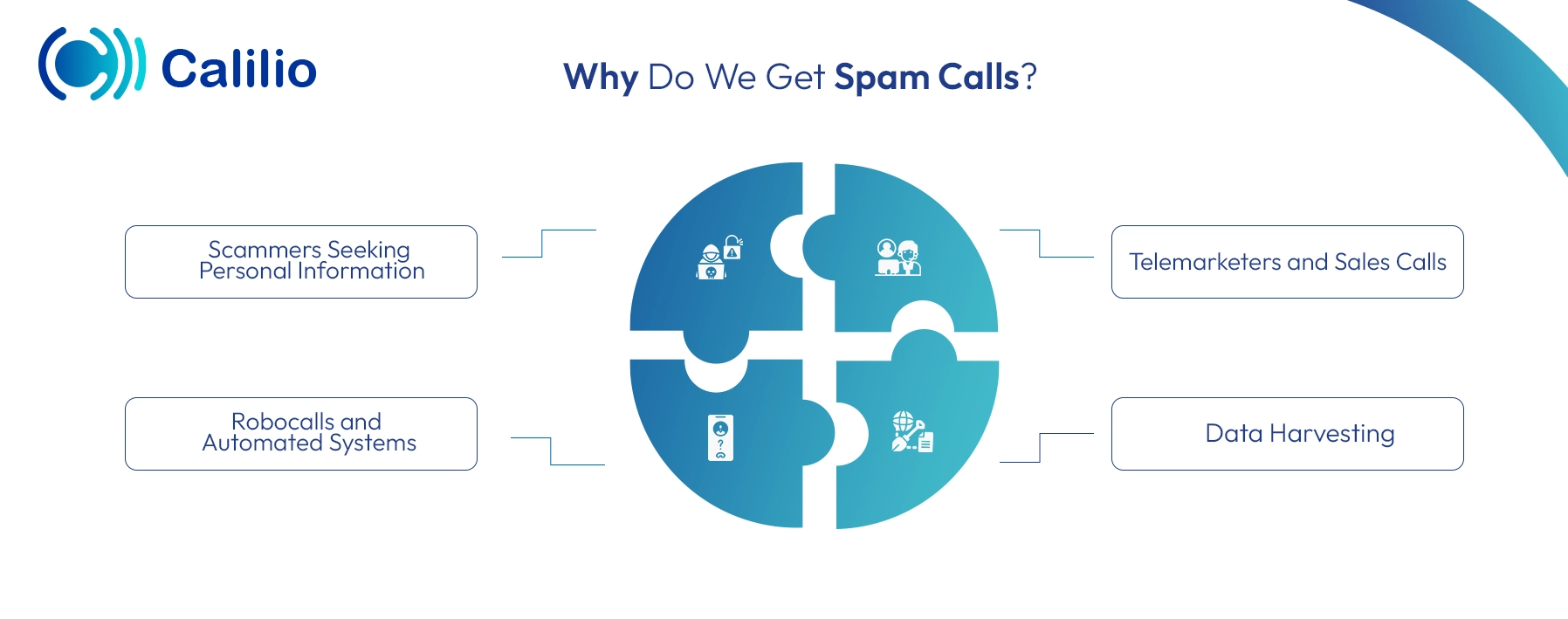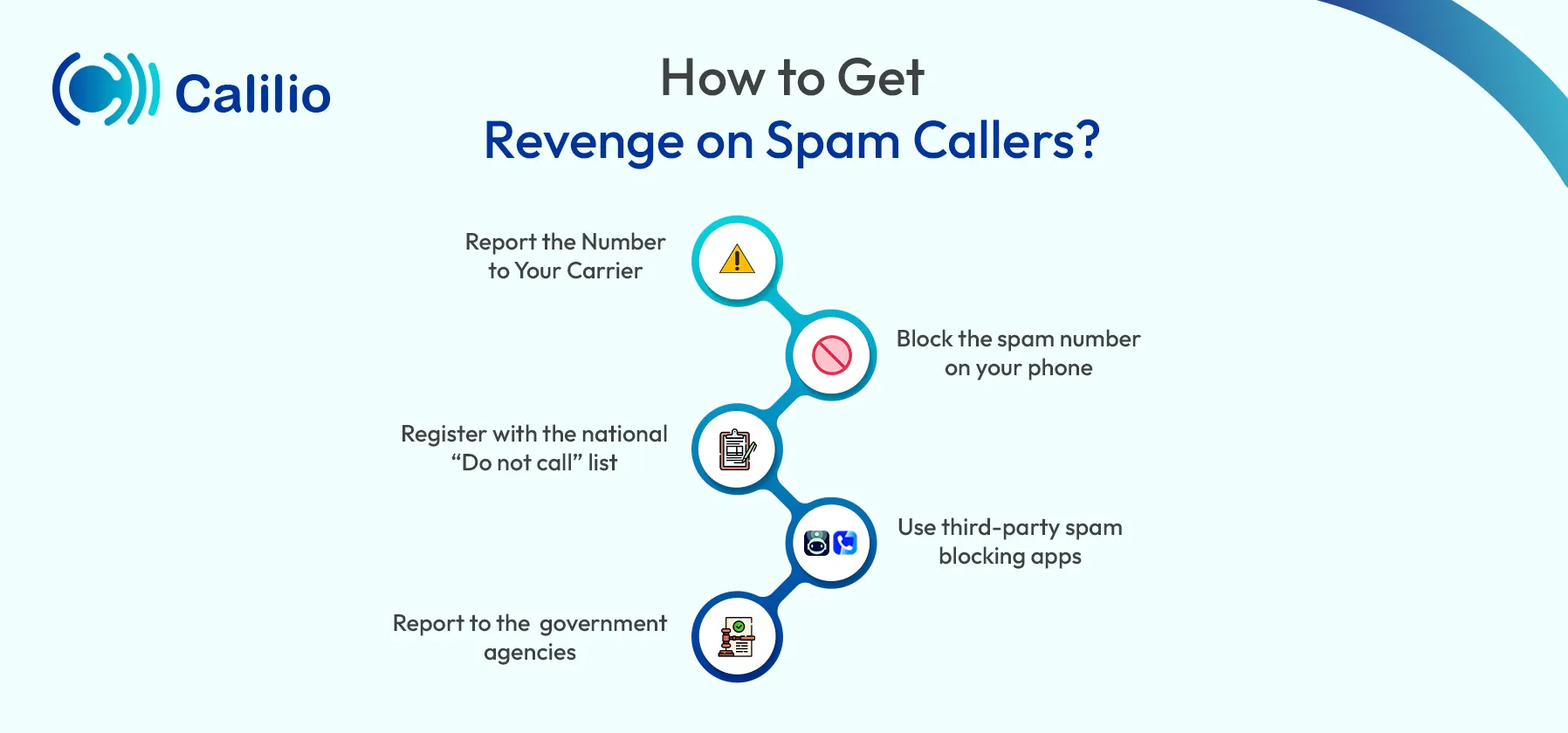Spam Phone Number Revenge: How to Handle Unwanted Calls Effectively

Sick of spam calls blowing up your phone? You’re not alone. Whether it's telemarketers, robocallers, or scammers, these calls interrupt your day and can even put your personal information at risk. Blocking or ignoring them might help for a while, but they often keep coming back.
This guide will show you simple and effective ways to stop spam calls for good. You’ll learn how to protect your phone, avoid scams, and take control of who can reach you. We’ll also show you a few fun yet legal pranks you can play on these callers.
Highlights:
Spam calls are often used for telemarketing, scams, or mass data collection, targeting random phone numbers.
You can fight back by blocking numbers, reporting them to your carrier or authorities, and using trusted spam-blocking apps.
Legal and harmless tactics, like wasting a spammer’s time or using automated responses, can discourage future calls without breaking the law.
What is Spam Phone Number Revenge?
Spam phone number revenge is the action taken against unwelcome or disruptive spam calls. Instead of just hitting "decline" or blocking them, you can report the number, use spam-blocking tools, or even waste the scammer’s time with harmless tricks.
The goal is to discourage spammers from calling again and to protect yourself from future scams. However, it’s important to stay within legal limits. While it may feel satisfying to fight back, make sure your actions don’t cross into harassment or violate privacy laws.
Why Do We Get Spam Calls?
We get spam calls for marketing purposes, fraud, and data collection. This attack targets demographic information, purchasing habits, or publicly available data.

- Telemarketers and Sales Calls: Businesses contact many people, hoping to attract customers with what they are offering. You will get calls repeatedly as part of their sales strategy.
- Scammers Seeking Personal Information: Fraudsters use spam calls to trick people into sharing credit card numbers or personal details by impersonating trusted organizations. They might pose as someone from your bank, the IRS, or even a family member.
- Robocalls and Automated Systems: Robocalls are automated calls that deliver pre-recorded messages, typically used for marketing or fraudulent activities, to gather personal or financial information. They can be about anything from the latest car warranty offer to political surveys.
- Data Harvesting: With so much personal information online today, spam callers can easily collect phone numbers. The collected numbers are sold and traded among telemarketers, scammers, and robocallers.
What is the Difference Between Spam and Scam?
Spam involves unwanted messages or calls, usually for marketing purposes, where businesses aim to promote products or services. These messages are sent without the recipient’s consent, often through mass emails or robocalls.
Scams, however, involve deceptive tactics to steal personal or financial information. Scammers impersonate trusted organizations, sometimes using caller ID spoofing. They call from a "00000" number to hide their true identity. Scams are highly risky, often leading to financial loss or identity theft.
Why Do People Seek Revenge on Spam Callers?
People seek revenge on spam callers due to the frequent interruptions they cause, the violation of privacy, and the security risks from scams.
1. Constant Disruption
Spam calls disrupt daily life, interrupting important activities or causing constant annoyance. They are not something you can simply tolerate or ignore every day. Many people feel compelled to take action against these disruptions to regain control of their time.
2. Privacy Violence
Spammers often spoof the caller ID to make the spam phone number seem to be from trusted sources. This tactic misleads the recipient into answering the call, and personal information may be exploited without consent. A sense of being violated can drive people to act in defense.
3. Security Concerns
Scammers utilize spam calls to trick people and gain sensitive data. With the personal information, they steal an individual’s identity and engage in activities like opening fraudulent accounts. Unsurprisingly, people become protective and seek retaliation for the violation.
4. Financial Toll
With SMS and voice phishing, spammers send messages impersonating a trusted entity, like a bank or government official. They may ask for banking information, account numbers, or passwords, claiming they need account verification. By doing so, they gain access to the victim's personal information and use it for fraudulent activities.
How to Get Revenge on Spam Callers?
If you’re wondering how to get revenge on spammers, the good news is that there are legal, effective options to do so. One of the simplest ways is to block or report the number to the carrier. Otherwise, you could fight back legally by registering with the national DNC list and reporting to the relevant government agencies.

1. Report the Number to Your Carrier
You can report the spam number to your mobile carrier. They have a specific procedure for reporting spam, either through customer service or online portals. Once reported, they either block the number or add it to a shared database of known spam numbers.
2. Block the Spam Number on Your Phone
Next, you can block spam numbers on your phone to prevent them from reaching you. Most cellphones have built-in blocking features, making the process as easy as selecting the number from your call log and tapping Block.
3. Register With the National “Do Not Call” List
The National Do Not Call list is a free service in many countries, including the U.S. Once your number is registered on the DNC list, telemarketers are legally bound to stop calling.
However, it may not stop all spam calls, but it will undoubtedly reduce the number of legitimate sales calls you receive.
Get An Affordable Phone System With Call Blocking & Call Filtering Feature!
4. Use Third-Party Spam-Blocking Apps
Third-party apps like RoboKiller and Truecaller detect and block spam calls before they reach you. These apps identify the numbers flagged as spam by other users or from databases of known spam numbers. They can block robocalls, telemarketers, and scammers, giving you more control over your phone and reducing interruptions from spam calls.
5. Report to the Government Agencies
What are Clever (But Safe) Tricks to Annoy Spam Callers?
Clever tricks to annoy spam callers involve tactics like wasting their time with nonsense or using automated response tools that play pre-recorded messages, making the interaction frustrating for them.
- Waste their time with nonsense: Engage the spam caller with irrelevant or absurd responses to waste their time and frustrate them.
- Pretend to be someone else: To confuse and scare the spam caller, pretend to be a law enforcement officer or government official.
- Use call-forwarding to send them to another spam number: Forward the spam caller to another spam number or voicemail to redirect their attention.
- Engage with automated response tools: Use automated response tools that play pre-recorded messages to waste the caller’s time.
- Answer the call and play a recorded sound or music: Answer with loud or disruptive sounds or music to confuse and annoy the spam caller.
Wrapping Up
Dealing with spam callers is more than just an annoyance—it’s a constant battle for your time, privacy, and peace of mind. Fortunately, you can do something about it. Whether you’re blocking numbers, reporting them, or getting a little creative with harmless pranks, there are plenty of effective and legal ways to fight back.
Summarize this blog with:
Frequently Asked Questions
Is It Legal to Spam Call Someone?
No, spam calling is illegal in many countries, including under laws like the Telephone Consumer Protection Act (TCPA) in the U.S., which regulates and prohibits unsolicited calls without consent.
Can Spam Calls Use Real Numbers?
How to Punish Spam Calls?

Still have questions?
Can’t find the answer you’re looking for? Please chat with our friendly team.
Stay in the loop
Get the latest call insights, trends, and updates delivered straight to your inbox.
By subscribing, you agree to receive updates from Calilio.
You can unsubscribe anytime.
